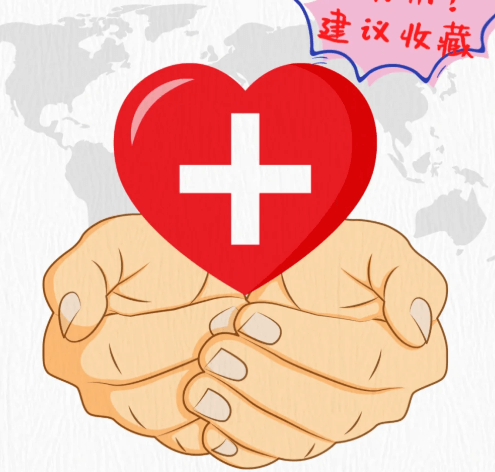HOME > OTHER TREATMENTS >
Cross-Border Medical Tourism Guide: How to Choose the Best Destination for Your Healthcare Needs
original:health91192025-02-10 16:17:24
Medical tourism has become a global phenomenon, with patients increasingly seeking treatments abroad for a wide range of reasons—whether it's to save costs, access advanced medical procedures, or find
Cross-Border Medical Tourism Guide: How to Choose the Best Destination for Your Healthcare Needs
Medical tourism has become a global phenomenon, with patients increasingly seeking treatments abroad for a wide range of reasons—whether it's to save costs, access advanced medical procedures, or find specialized care. However, with so many options available, choosing the best medical tourism destination can be a daunting task. The key to making an informed decision is understanding the factors that matter most when selecting a medical travel destination. In this article, we’ll discuss the essential considerations to help you choose the right healthcare destination, including medical quality, cost, language, cultural differences, and more.

1. Medical Quality and Accreditation
The most important factor when selecting a medical tourism destination is the quality of care. Ensuring that the country or facility you choose adheres to high medical standards is critical to achieving a successful outcome. Some countries are known for their medical expertise in specific fields, such as Thailand for dental treatments, South Korea for cosmetic surgery, and India for orthopedic and cardiac procedures.
When researching medical facilities, look for internationally accredited hospitals and clinics. Accreditation from organizations like the Joint Commission International (JCI) or the International Organization for Standardization (ISO) ensures that the medical center meets global standards for quality, safety, and patient care. Accreditation also indicates that the facility has been evaluated by an independent body to ensure its services are reliable and of high quality.
2. Cost and Affordability

Cost is often one of the primary reasons why people seek medical care abroad. The cost of healthcare can vary significantly from country to country, and in many cases, medical treatments in destinations like Mexico, Thailand, or Turkey are far more affordable than in the U.S., Europe, or Australia. However, it’s important to keep in mind that while lower prices may be appealing, they should not be the sole factor in your decision.
When evaluating costs, consider not only the price of the procedure itself but also other expenses such as travel, accommodation, post-operative care, and potential follow-up treatments. It’s a good idea to obtain a detailed cost breakdown from your medical provider before committing. Keep in mind that, while some countries offer lower prices, they may not always have the same level of advanced technology or specialized care that a more expensive destination might provide.
3. Language and Communication Barriers

Language can be a significant barrier when seeking medical care abroad. Clear communication with medical professionals is essential to ensure that your diagnosis, treatment plan, and recovery process are understood. In countries like the U.S. or the UK, where English is the primary language, communication is less of an issue, but in other countries, there may be language differences that make it harder to express concerns or ask questions about your treatment.
Before choosing a medical tourism destination, verify whether the healthcare providers speak your language fluently or if they offer translation services. Many international hospitals and clinics cater specifically to medical tourists and employ multilingual staff to assist patients. Choosing a destination where you can easily communicate with your doctors, nurses, and support staff can significantly enhance your experience.
4. Cultural Differences and Patient Comfort
Cultural differences can affect your overall experience when seeking medical care abroad. Understanding and respecting local customs, as well as being aware of the cultural practices of your healthcare providers, can help you feel more comfortable during your treatment.
For example, in some cultures, there may be a more formal approach to doctor-patient relationships, while in others, patients may have a more collaborative experience. Be sure to do research on the cultural norms in the destination you're considering and how these might impact your expectations of the healthcare experience.
Additionally, consider factors like the local diet, recovery environment, and amenities when choosing your destination. If you have dietary restrictions or specific post-operative care needs, it’s important to ensure the medical center can accommodate them. Also, think about whether the destination offers a comfortable recovery environment that allows you to relax and recuperate during your recovery period.
5. Travel Logistics and Accessibility
The logistics of traveling to a foreign country for medical treatment are an important consideration. Some medical tourism destinations are more accessible than others, depending on where you live. If you’re traveling internationally, consider the cost and convenience of flights, visa requirements, and the availability of transportation to and from the medical facility.
Another key aspect of travel logistics is the availability of post-treatment recovery services. Some medical centers provide comprehensive packages that include airport pick-up, accommodation, and transportation to and from the facility, which can make the process smoother and more convenient. Additionally, find out whether your destination has adequate healthcare infrastructure should you experience any complications during or after your treatment.
6. Reputation and Reviews
Before committing to a medical tourism destination, it’s important to check reviews, testimonials, and the reputation of the healthcare providers you’re considering. Researching online forums, patient reviews, and testimonials from previous patients can give you insight into the experiences of others who have undergone similar procedures. Look for feedback on the quality of care, the professionalism of the staff, and the overall satisfaction with the treatment results.
If possible, try to connect with past patients who have undergone treatment at the facility to learn more about their experience. Additionally, some hospitals offer free consultations or virtual visits, which can give you the opportunity to assess the medical staff and facilities before making your decision.
7. Legal and Ethical Considerations
When traveling abroad for medical treatment, it's important to understand the legal and ethical landscape of the country you're visiting. Ensure that the medical facility complies with international medical laws and ethical standards, especially in sensitive areas like fertility treatments, organ transplants, or cosmetic surgery. Understanding the country’s regulations surrounding medical malpractice, patient rights, and legal protections can provide peace of mind in case something goes wrong.
Additionally, check if your health insurance policy covers treatments abroad. Some insurance providers offer coverage for international medical treatments, while others may not, so it’s important to clarify this before traveling.
8. Aftercare and Follow-Up Treatment
Aftercare and follow-up treatment are critical components of the healing process, and they should be carefully considered when choosing your medical tourism destination. Many countries provide excellent aftercare services, including rehabilitation centers, physical therapy, and follow-up consultations. However, some destinations may not offer the same level of ongoing care after your treatment.
Consider whether you’ll be able to return to the facility for follow-up appointments or whether you’ll need to travel back to your home country for any necessary post-operative care. Some patients opt to extend their stay in the destination country for a more comprehensive recovery process.
Conclusion
Choosing the right medical tourism destination is a decision that requires careful consideration of several factors, including medical quality, costs, language barriers, cultural differences, and travel logistics. By researching these key elements and evaluating your personal needs, you can ensure that you select the best destination for your healthcare needs. Whether you’re seeking cosmetic surgery, dental care, fertility treatments, or specialized surgeries, the right destination can provide you with high-quality care, better affordability, and an overall positive experience.
Remember, thorough research and careful planning are essential to making an informed decision. With the right information and preparation, your medical tourism journey can be a successful and rewarding experience.